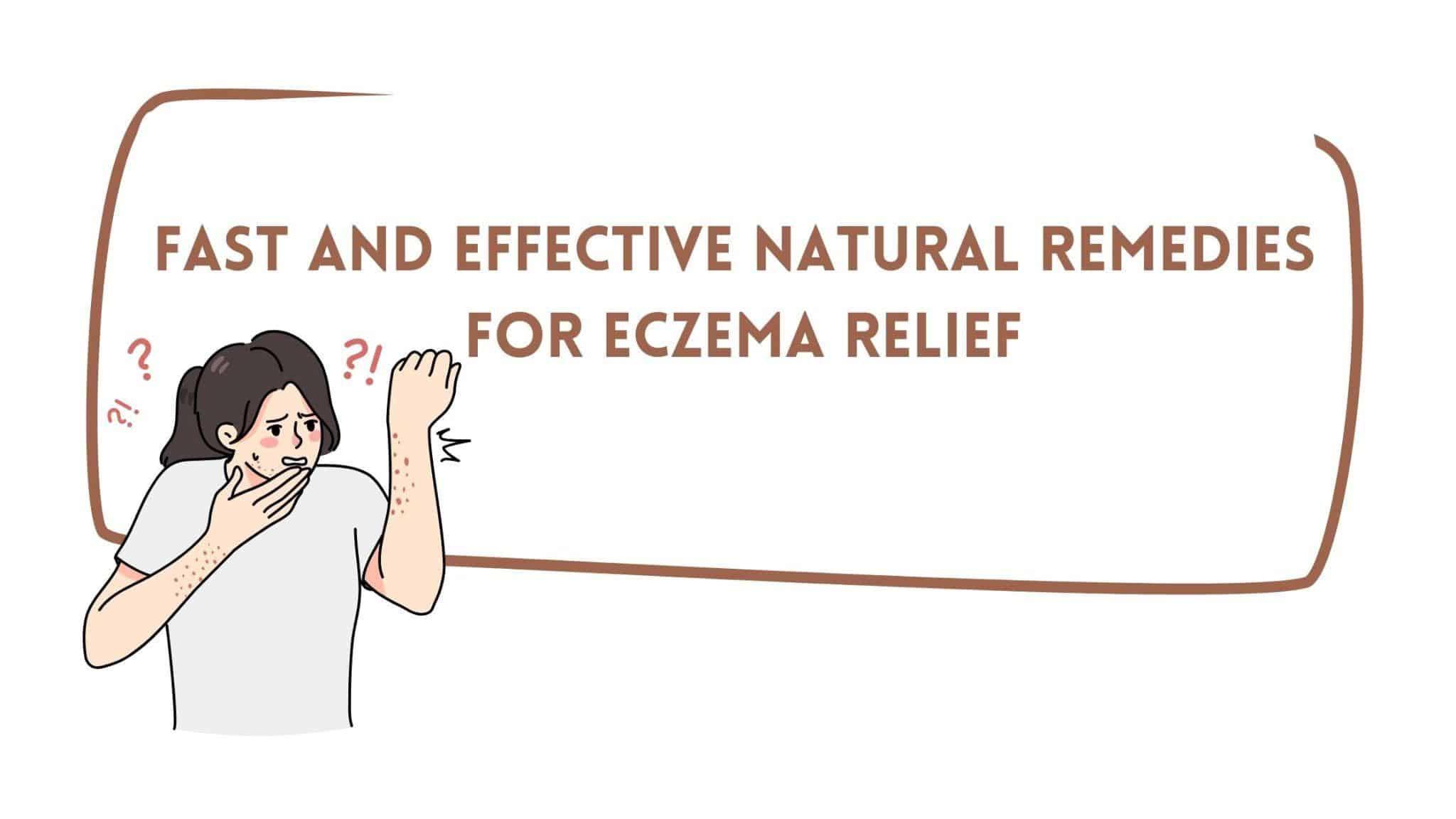Eczema is a skin issue that leads to intense itching. It isn’t easy to handle.
What you can try at home is:
- Hydration and moisturization
- Natural oils and blams
- Dietary adjustment
- Herbal and alternative therapies
- Home care practices
Besides conventional methods and natural remedies, Red light theory is another advancement in Eczema treatment options. You can go for it as a solid solution.
Understanding Eczema
You often hear someone say, “My skin is flaring up,”. What they usually mean is that their skin is feeling dry, red, and excessively itchy. It doesn’t always mean they have eczema, but when it is eczema, you’ll notice it looks dry, patchy, and bumpy on the skin.
Eczema affects the skin’s barrier. It can’t hold moisture and protect itself from outside elements. Unfortunately, there are different types of eczema, each with its own set of triggers and symptoms.
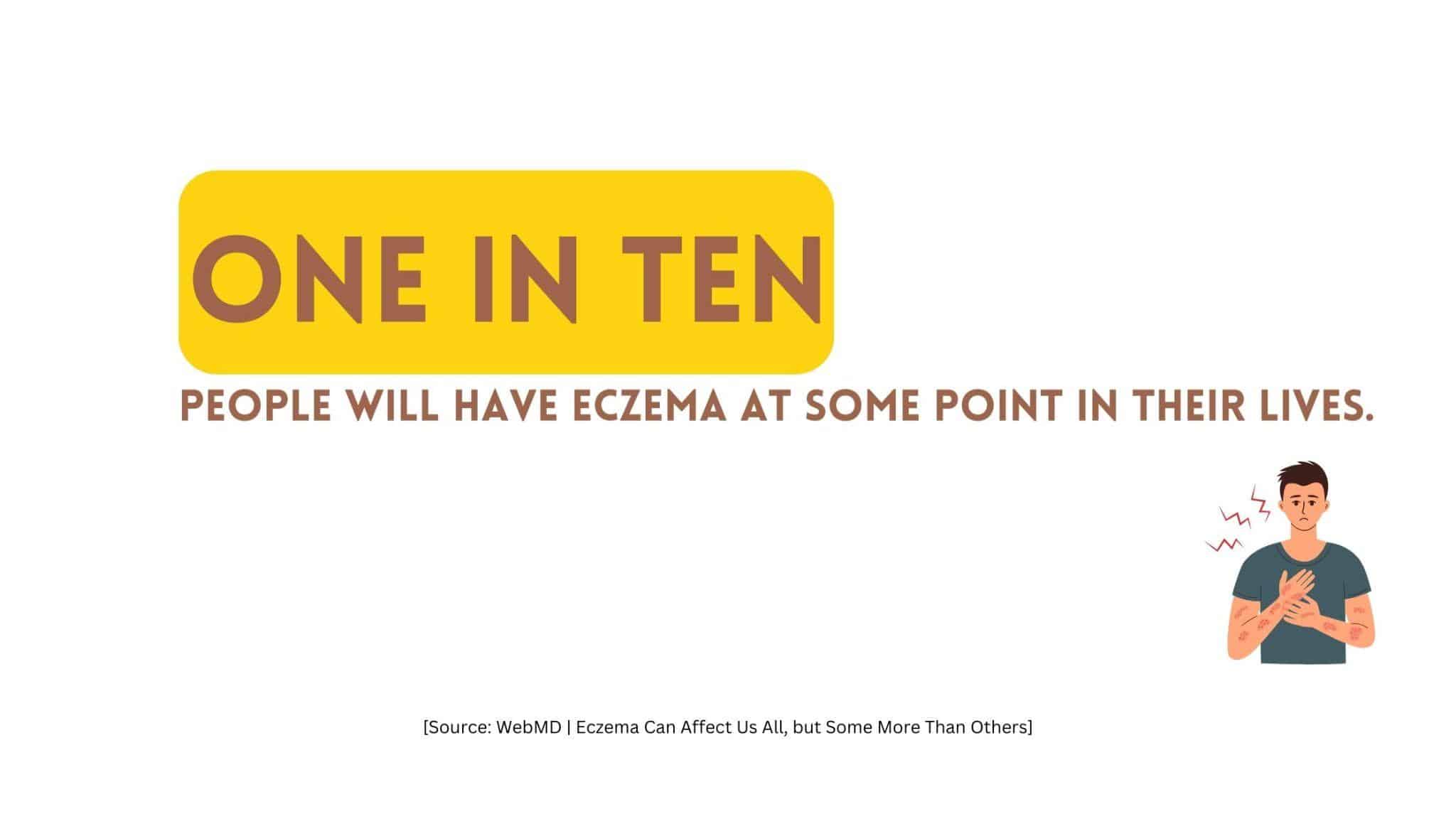
It is concerning how eczema is spreading. People who are already victims of eczema want to try natural remedies along with medicines to manage their discomfort.
6 Types of Eczema
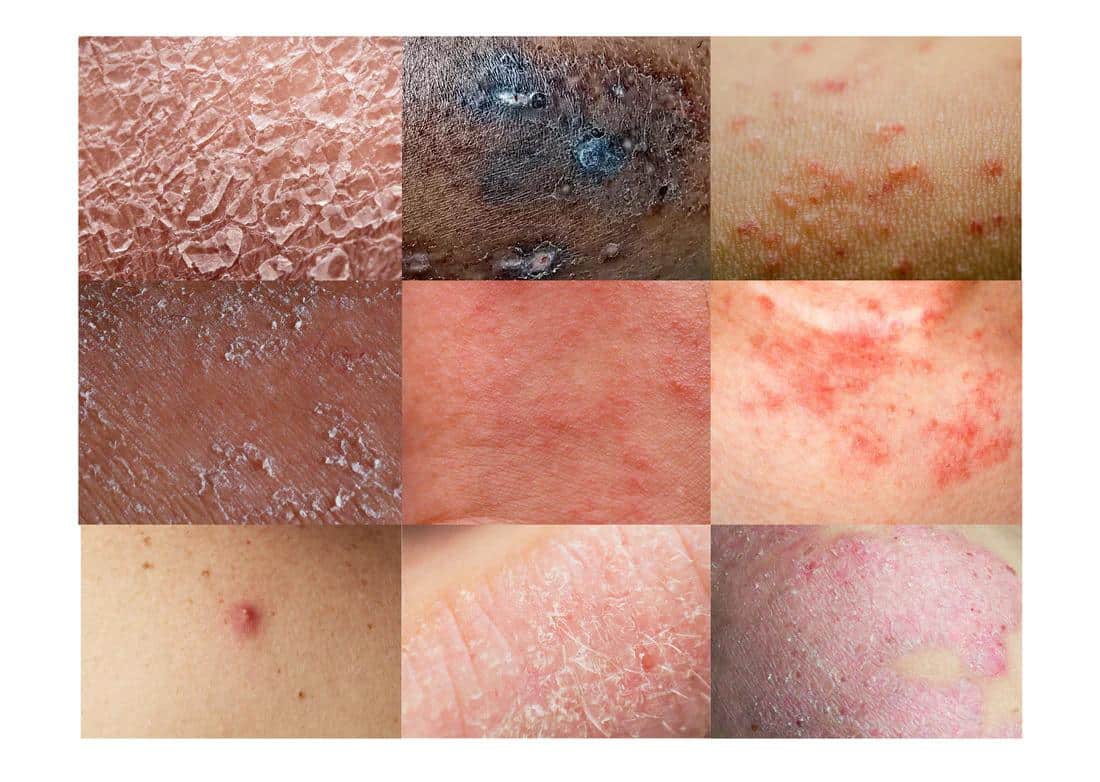
[Source: p2andyou]
|
Eczema Types |
Description |
|---|---|
|
Atopic dermatitis |
|
|
Contact dermatitis |
|
|
Dyshidrotic eczema |
|
|
Nummular eczema |
|
|
Seborrheic dermatitis |
|
|
Neurodermatitis |
|
Natural Remedies for Eczema Relief
While you can go for conventional treatment, some of you may want to try natural remedies to reduce your symptoms. We’ve put together a few natural methods that can help relieve eczema or at least make the pain a bit more bearable for a while.
Hydration and Moisturizing
Moisturizing your skin regularly is necessary to manage eczema and protect the skin barrier from excessive dryness. Here is the importance of hydrating eczema-prone skin:
- Glycerin, sodium hyaluronate, and urea draw water to the skin
- Applying emollients immediately after bathing hydrates the skin smooth
- Water keeps the skin elasticity and prevents cracking
- Shea butter deeply nourishes and soothes irritated skin
- Aloe vera calms inflammation, reduces redness, and leaves cooling relief
- Jojoba oil helps restore the skin’s barrier function and prevents moisture loss
Natural Oils and Balms

Several natural oils are traditionally used to reduce eczema symptoms. Here are the benefits you will get from using natural oils and balms:
|
Natural oils and balm |
Benefits |
|---|---|
|
Coconut oil |
|
|
Sunflower oil |
|
|
Calendula balm |
|
Application tips for optimal results
- Apply moisturizer after coming from the bath on damp skin
- Pat dry the skin rather than scrubbing hard
- Apply a thin layer of oil and balm so that it doesn’t clog the pores
- Use oils and balms at night for deeper penetration
Dietary Adjustments
Certain foods actually improve skin health. You can try adding these dietary supplements or foods to your diet to avoid eczema flare-ups.
|
Food to eat |
Foods to avoid |
|---|---|
|
|
Herbal and Alternative Therapies
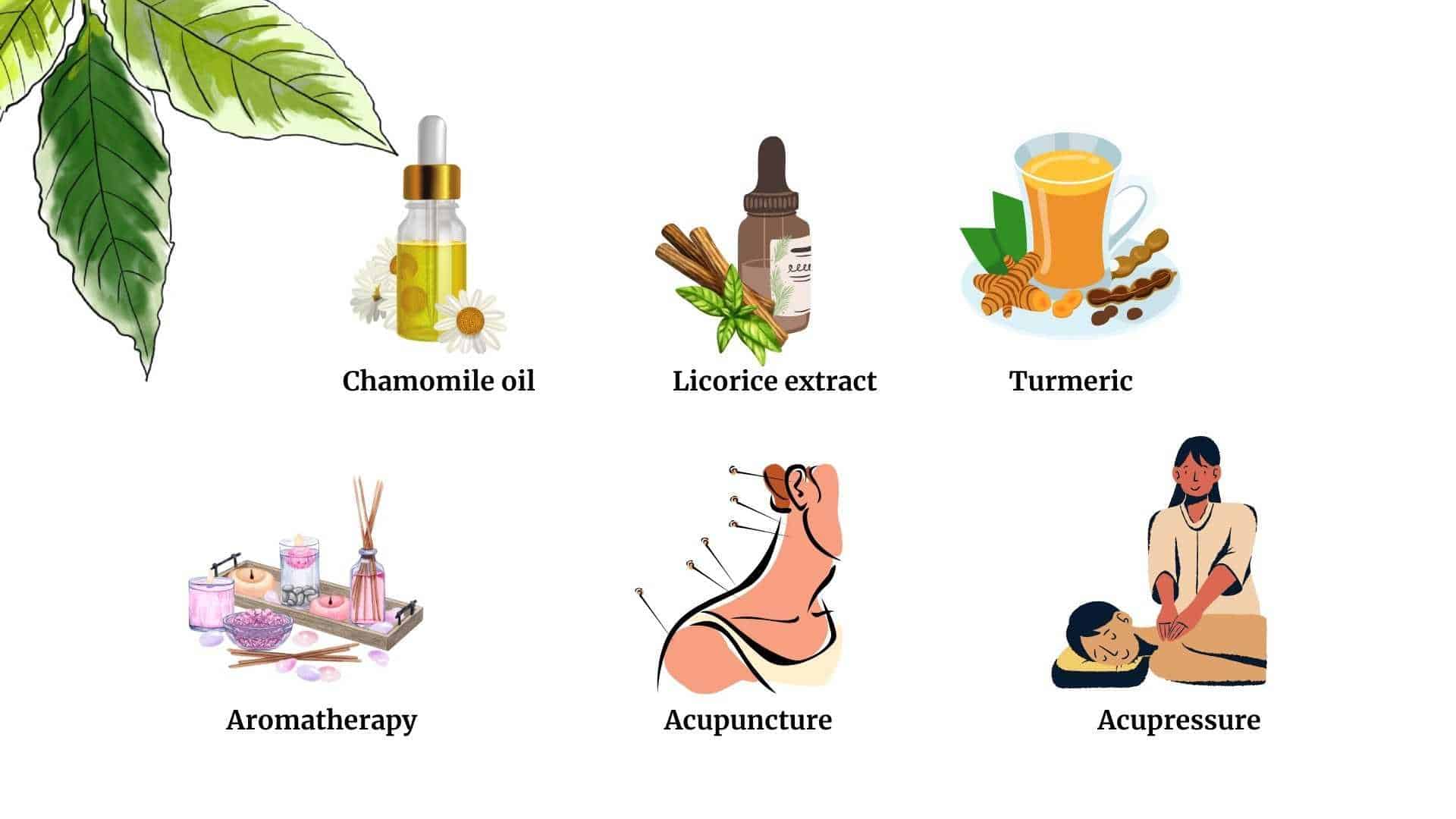
Hebala methods are often used when traditional remedies or medications for eczema aren’t available. During those times, they usually try:
- Chamomile oil or extracts soothe the skin and reduce the redness
- Turmeric is taken as a supplement or applied for work as an anti-inflammatory
- Licorice extract reduces inflammation and itching
How acupuncture and aromatherapy may help:
- Acupuncture helps lower stress and boosts blood flow, which can be good for eczema.
- Aromatherapy uses essential oils like lavender and chamomile for the calming effects.
- Acupressure helps reduce itching and makes the skin feel better.
Home Care Practices
Homecare practices are another way you can keep your eczema in control. You can easily manage triggers and symptoms by following small steps at home.
- Avoid harsh soaps and detergents that can strip the skin’s natural oils
- Choose gentle, fragrance-free cleansers
- Buy hypoallergenic bedding
- Use hypoallergenic mattress covers to reduce exposure to dust mites
- Wear soft and breathable fabrics
- Avoid wool or synthetic materials that can irritate the skin
|
Note: Whenever you’re trying out any of the natural remedies we’ve talked about, it’s a good idea to do a patch test first. Just apply it to a small area of your skin before using it everywhere else. |
|---|
6 Common Triggers For Eczema
The triggers for the different types of eczema can vary. We’re going to include the ones that tend to be pretty common across all of them.
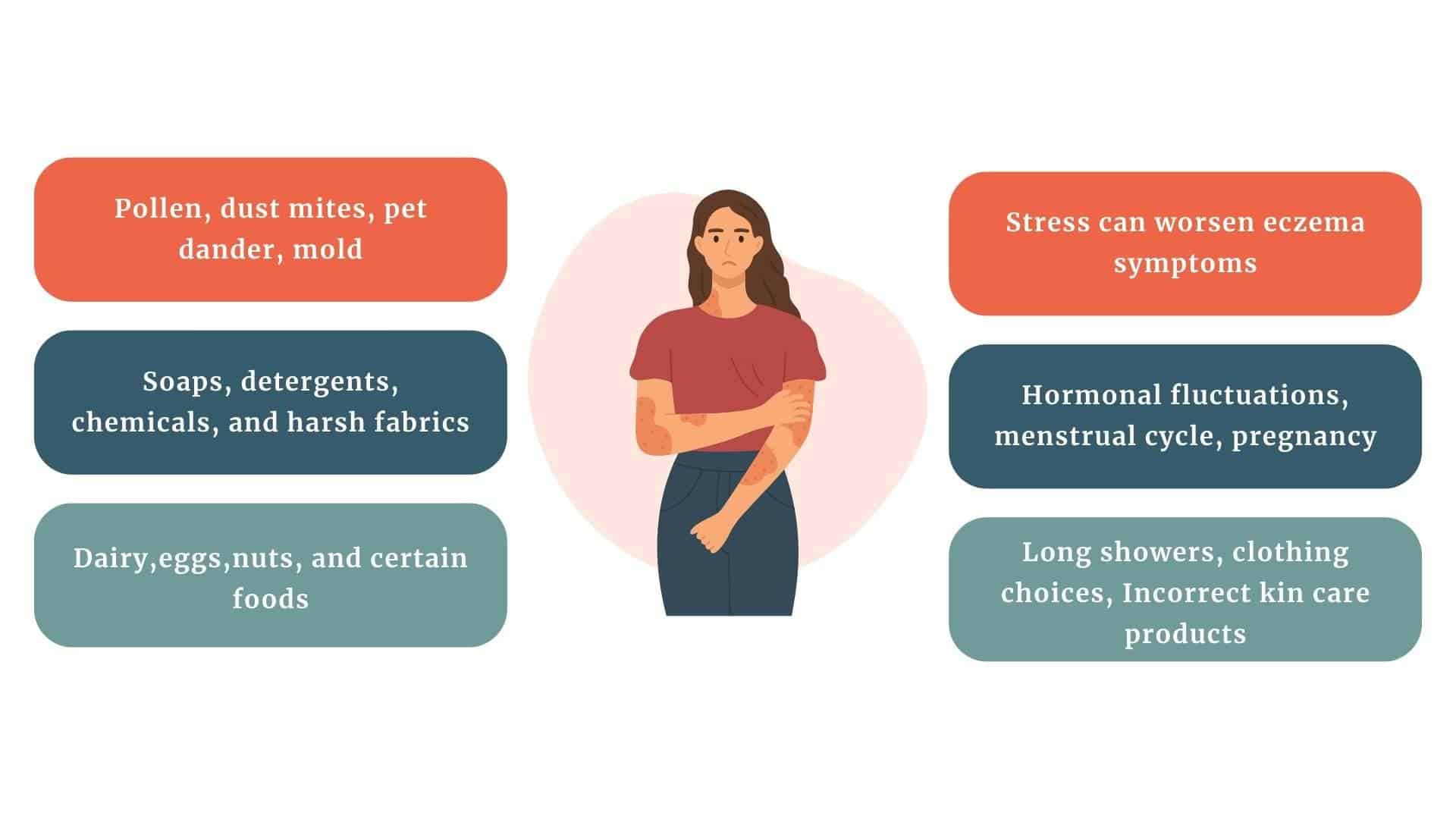
Importance of a Holistic Approach
A holistic approach is all about dealing with every part of eczema. It helps reduce the chances of flaring up and calms down the triggers that can make things worse.
- Knowing the triggers and avoiding them: One way to manage eczema flares is to keep a diary and avoid irritants.
- Moisturizing the skin regularly: Use a thick moisturizer to hydrate the skin barrier.
- Using gentle cleansers and laundry detergents: This helps to avoid irritating the skin.
- Managing stress: Do relaxation techniques such as yoga or meditation.
- Consulting with a dermatologist: Dermatologists can help figure out what’s going on with your eczema and show you how to manage it better.
Preventive Tips
Routine maintenance to prevent flare-ups
- Use moisturizer regularly, even when your skin feels fine.
- Avoid hot showers, as they can strip the skin’s natural oil
- Shower in lukewarm water and limit bath time to 10-15 minutes
- Add fragrance-free and soap-free cleansers to your shower routine
- Use skincare products that are suitable for sensitive skin
Recognizing and Avoiding Personal Eczema Triggers
- Track potential triggers like weather changes, stress, certain foods, and irritant contact.
- Keep yourself away from Pollen, dust mites, pet dander, and mold.
- Avoid eating certain foods, such as dairy or gluten that may trigger flare-ups.
Frequently Asked Questions
What is eczema, and how does it affect the skin?
Eczema is a skin condition that makes the skin dry, itchy and inflamed. It attacks the skin barrier’s function and makes it more sensitive.
Are natural remedies safe for children with eczema?
For your children with eczema, you can use natural ingredients like coconut oil, oatmeal, or other natural remedies. Still, it is best to consult your doctor before doing anything.
Which natural oils are most effective for eczema relief?
- Coconut oil
- Jojoba oil
- Shea butter
Can dietary changes help with eczema symptoms?
Avoiding dairy and processed foods and increasing omega-3s and probiotics will help reduce eczema symptoms.
What are some stress-management techniques for eczema?
- Yoga
- Meditation
- Breathing exercises

